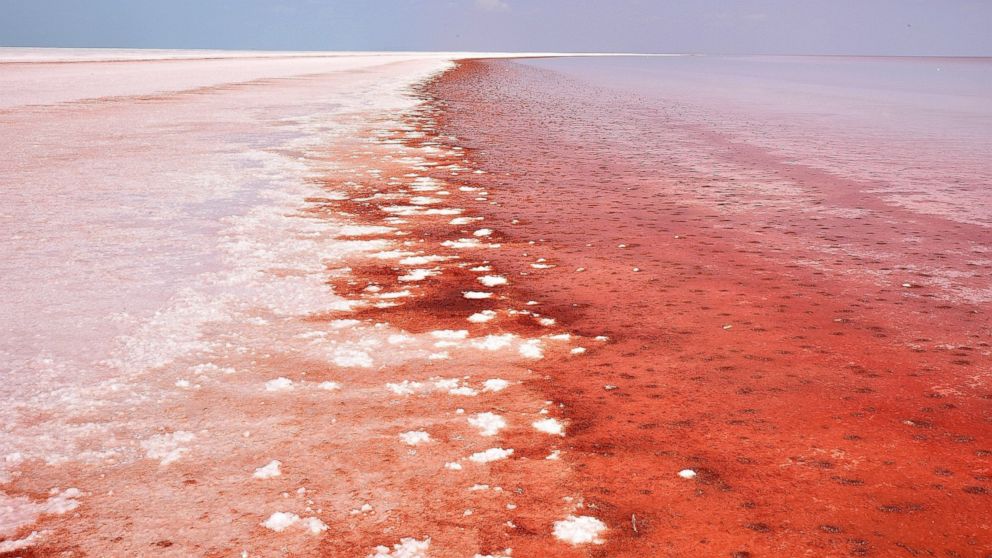
Angara: A salt lake in Turkey is reported to have been turned completely red. As per scientific analysis it has been observed that the wonderful phenomenon is as a result called algae bloom. The corresponding studies were carried out by Stony Brook University marine ecology research professor Christopher Gobler The Lake called Tuz Gola, the second-largest lake in Turkey, have been evaporating during the hot summer days. The aftereffect of evaporation was the mass destruction
of plankton, which generally eat algae. This enabled
the water organisms to grow, spread and impart the spectacular red coloration to the lake water. The microorganisms which generate the eye-catching coloration to the water is known as Dunaliella salinas algae. According to Christopher Gobler, the lake was losing water while the salinity was getting higher and higher, making the environment totally unfavorable for the plankton to survive which normally eat this red algae According to the Professor, the booming algae would probably spread red coloration until the lake gets fully evaporated. So, it is believed that the phenomenon would last till next month until the summer heat reaches on top. In winter, the lake can be again viewed with full of fresh water. During summer, the scarcity of water persuades tourists to walk across the lake which looks really enchanting with its natural red color. Tuz Gola lake was declared as a Special Environmentally Protected Area by the United Nations in 2013, as it is home to endangered flamingo species in Europe and also because of its unique biodiversity. To everybody’s surprise, these flamingos are also slightly pink in color It is said that they get the coloration through the food web, which starts with the algae. The cluster of plankton which eat these algae are then eaten by fishes and other organism in the water. The flamingos which eat these fishes and other organisms in the lake naturally appear in spectacular pink color. Video on the red colored salt lake in Turkey